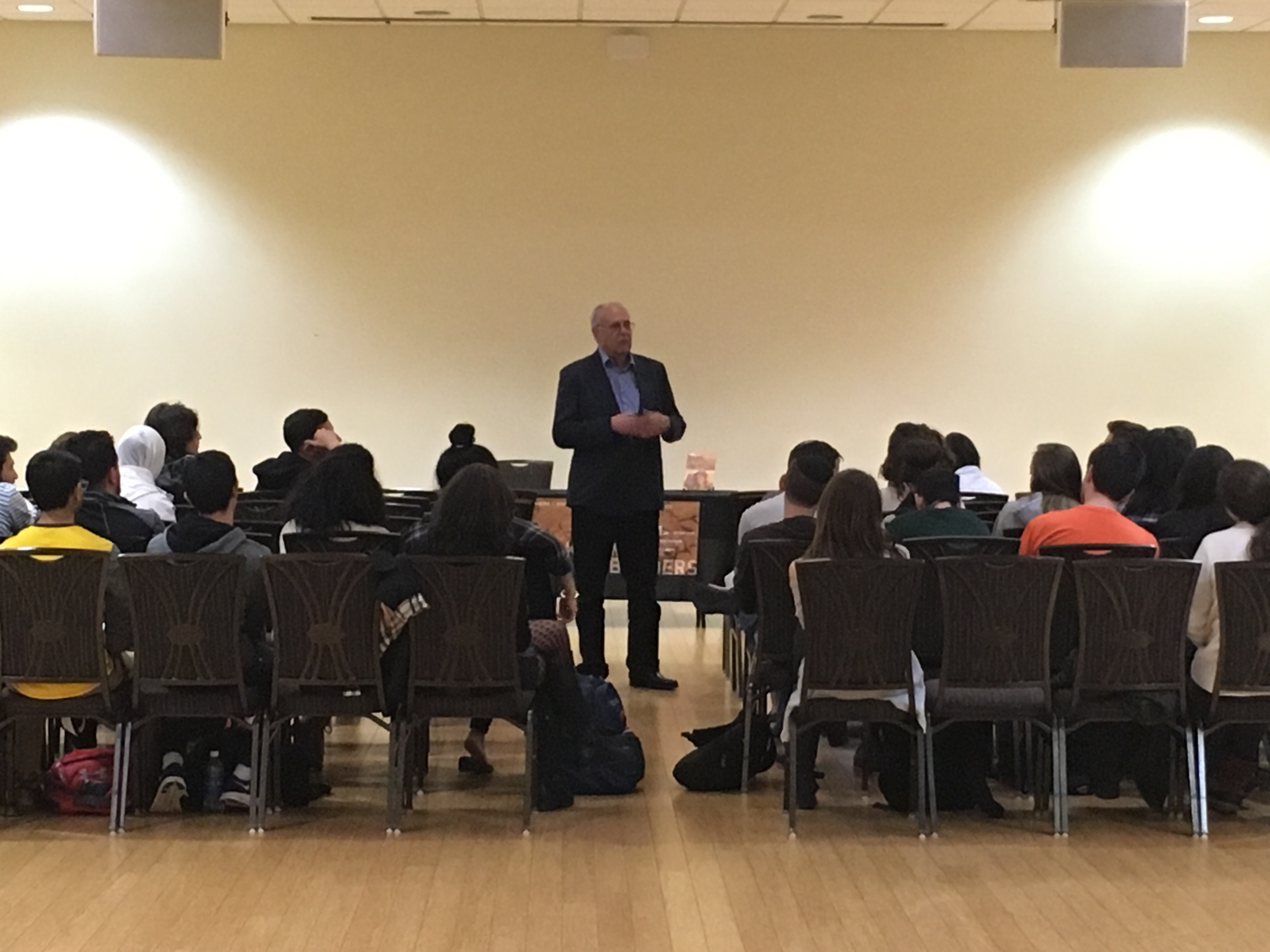By Samuel Antezana
For The Diamondback
Representatives from Israel’s Arava Institute for Environmental Studies visited Stamp Student Union on Monday to educate a room of 50 students about water shortages around the world, focusing on the West Bank of Palestine.
During the presentation, Shmuel Brenner, director of the Arava Center for Sustainable Development, emphasized the importance of unity between countries, especially Palestine and Israel. Borders and differences between both nations play a role in how water is distributed, he said.
“The Arava Institute can play an extensive role in creating solutions to water shortages in the Middle East and slowly in other parts of the world,” Brenner said. “It brings together Israelis, Arabs, Americans, Europeans and other people from around the world.”
Israel has the highest rate of water recycling in the world, and the techniques used in water treatment and conservation that are taught at the Arava Institute — an environmental studies and research program — helped this along, he said.
Techniques taught there can then be exported to countries in need around the world, such as Kenya, he said. Environmental systems have already been created there, and other countries can begin to observe how the systems work.
“If we are able to leave bitter disagreements aside and look at the water issue in a different way, we can start making real negotiations,” Brenner said, referring to the scarcity of water in Palestine and how Israel is trying to work out a way to distribute more water to Palestine.
Through the institution’s work, as well as among collaboration among its diverse students, it can foster future negotiations. Once stronger environmental projects are created, peace will be enhanced throughout the region, Brenner said.
“Often, I hear about how the political realm of the environment is advocating for environmental policies but not about how it plays a role in negotiations and in peace,” said Liat Deener-Chodirker, a junior American studies major.
Liat said she thinks learning about the Arava Institute’s work can rally people around the environment, which can be used as a platform for solutions to other issues.
Several student organizations partnered with the Arava Institute to host the event, such as J Street UMD, Maryland Hillel and the Organization of Arab Students.
Junior Ariel Lanes, president of J Street UMD, spoke about what this event means to her and the organization.
“In J Street, we focus on supporting American leadership towards a two-state solution and there are a lot of different aspects that go into the solution of a conflict,” said Lanes, a government and politics and philosophy major. “Environmental issues extend past borders, and eventually there has to be an allocation of resources for people in those regions to figure out they can coexist with one another.”



